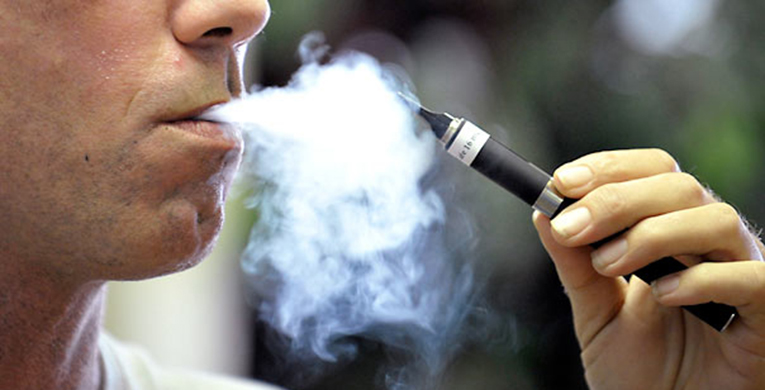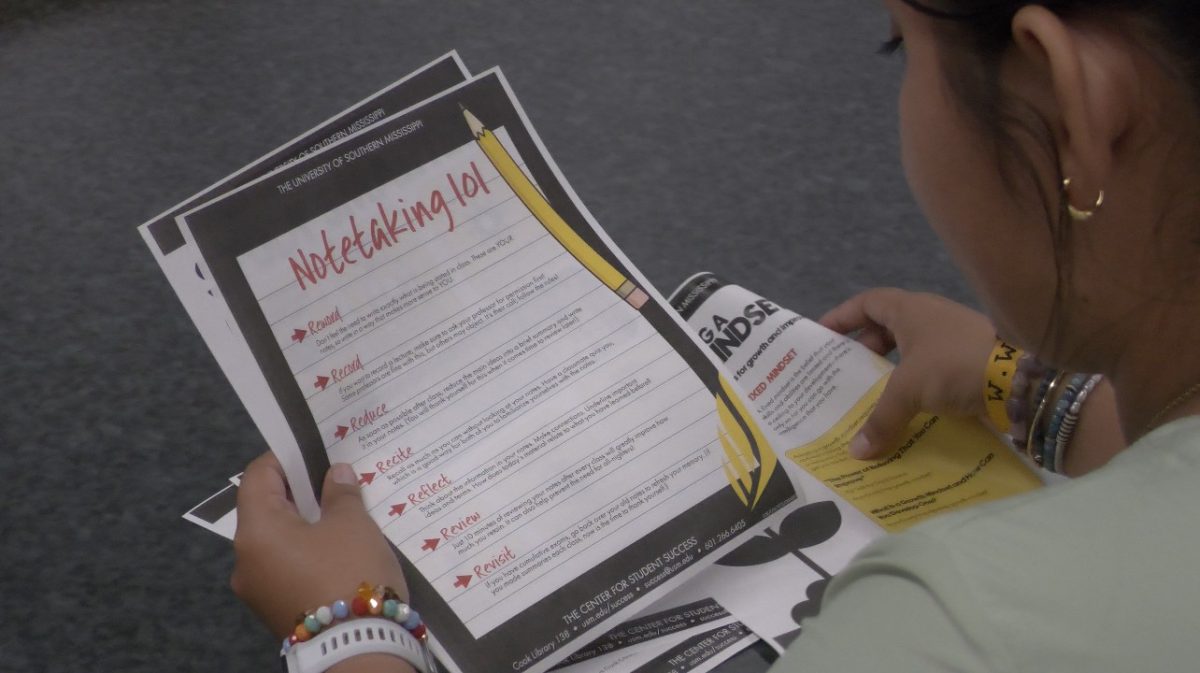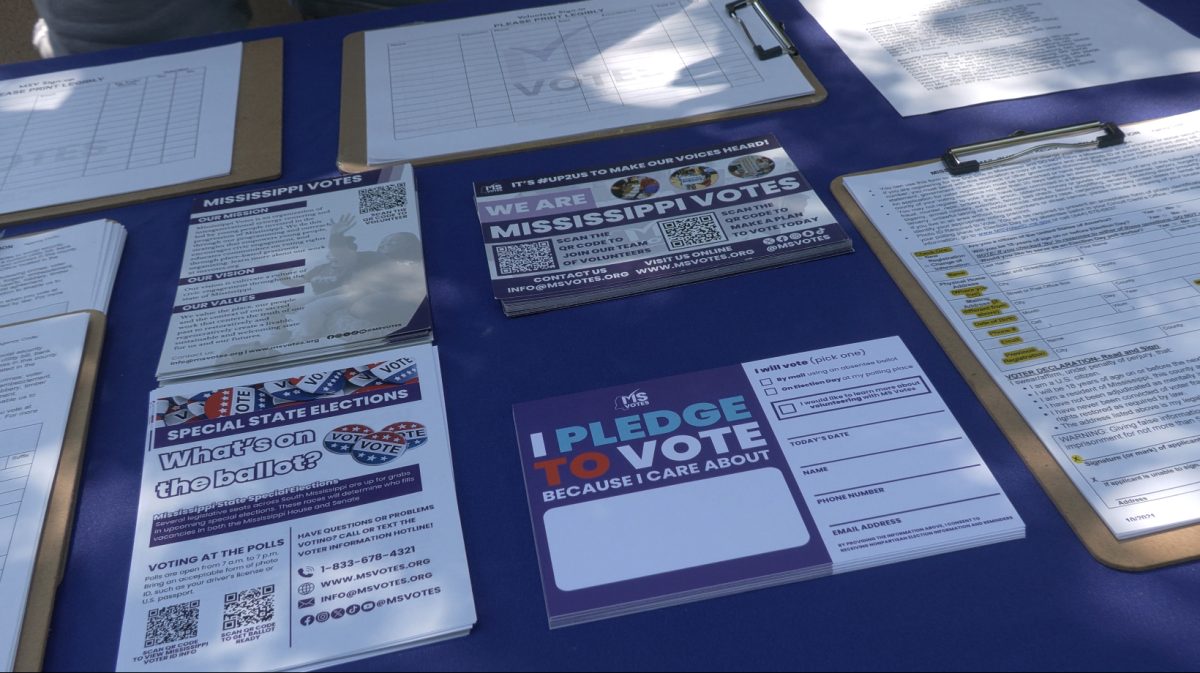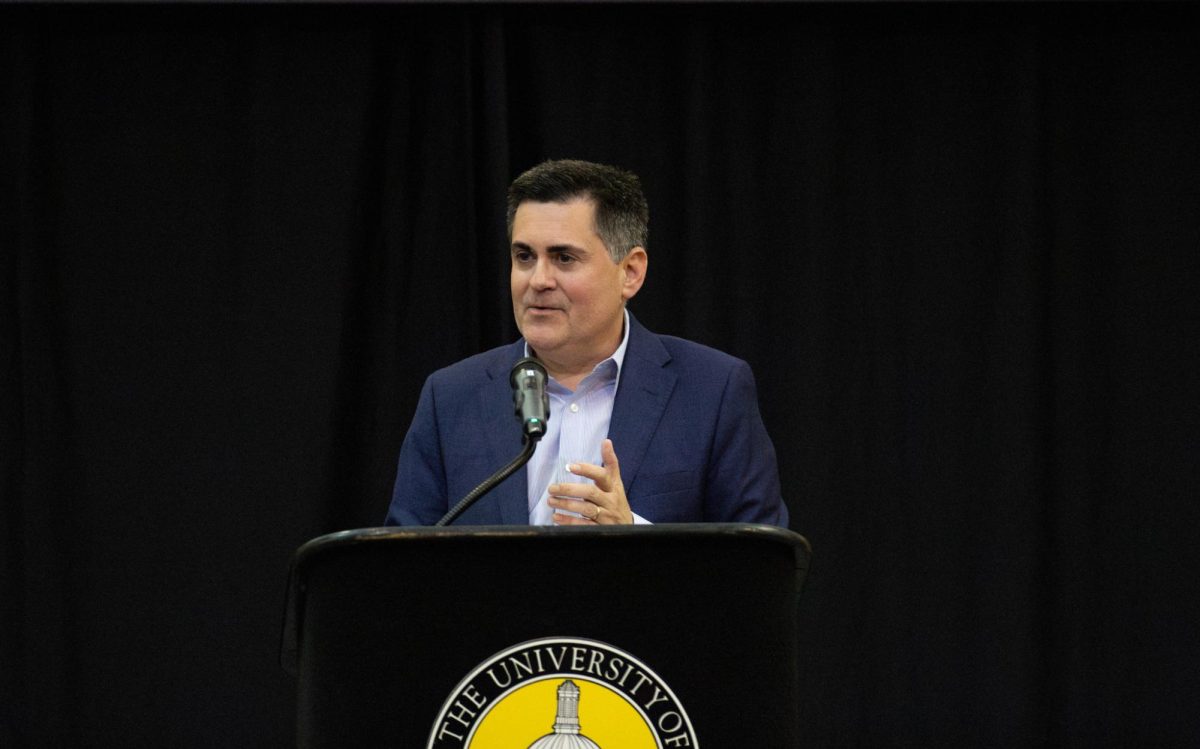Despite Southern Miss being a “tobacco free” campus for four years, students still complain about smoking on campus, exposing the policy’s fundamental dysfunctions.
In 2017, The University of Southern Mississippi implemented a “tobacco free” policy. This meant removing designated smoking zones around campus, instead replacing them with “no smoking or vaping” and “smoke free campus” signs.
Students know that there is no smoking allowed on campus as soon as they go through orientation, but, aside from seeing those “no smoking” signs, not much else is done to enforce this policy.
According to the official “no smoking” policy, which can be found in the “Student Health Services” section on the Moffitt Health Center’s website, “the responsibility for the enforcement and communication of this policy ultimately rests with all members of the University community”. Basically, the only enforcement for this policy comes from students and faculty directly, where they have to call out someone for being a smoker. This can quickly put all parties in an uncomfortable position, which inadvertently keeps everyone quiet.
It doesn’t help that there are few consequences for violating this policy. Other Mississippi schools, like Delta State University, have a much stricter tobacco free policy. Delta’s university police department enforces their smoking policy, and violators can be fined $50 per violation. The most extreme consequence that a Southern Miss student could face is to be asked to speak to the Dean of Students.
“Everyone who smokes knows it’s bad, but we should not be considered lesser than,” said Haley Beasley, a current Southern Miss student.
Beasley first attended Southern Miss in 2014 to get her first bachelor’s degree in Performance. Now, as she works to get her second bachelor’s in English, she wishes that there were still designated smoking zones on campus, especially since many people still find ways to smoke anyways.
“Students and faculty are in a limbo, like, ‘What will happen if we do smoke?’ People [are] able to smoke because no one enforces it,” said Beasley.
If anything, smoking on campus has become a worse problem now that there is a “tobacco free” policy. Without designated smoking areas, many students and faculty are forced to smoke in busy locations, especially in lunch or study areas. This exposes others to second-hand smoke, which has been proven unhealthy in any capacity. Even Beasley, who is a smoker herself, does not enjoy being surrounded by smoke when she sits behind the Liberal Arts Building.
“Where there is a lot of student traffic, there shouldn’t be smoking,” Beasley said. “The school should invest a little money into small areas where it isn’t congested to place a smoking zone.”
Hailey Biggart, a junior elementary education major, has also experienced a lot of problems with smoking around campus.
“I still see people, mostly custodial staff, smoking all over campus, so I definitely think having smoke zones on the outskirts of campus would help with that,” Biggart said. “I like that the campus is smoke free because I do not like the smell of cigarettes, but I understand smoking isn’t something someone can just stop doing.”
One way that people work to stop smoking is by switching to vapes or other electronic nicotine devices. However, the policy also prohibits these devices. It makes sense that the university wants to prohibit tobacco use for the health of its students, but limiting devices that assist on that journey of quitting does not.
“I don’t mind vaping around campus because the smell of vape doesn’t bother me,” Biggart said. “They might allow people to vape on campus but not smoke, but I’m not sure if that’s something they can do.”
While many universities have enacted some form of tobacco ban in hopes to encourage better overall student health, Southern Miss’s policy seems counterintuitive, since people are still smoking in secret across campus. This current policy is especially confusing to someone like Beasley, who doesn’t remember hearing students, faculty or staff complaining about smoking before.
“When there was no policy enacted at all, it wasn’t an issue, because people knew that people would smoke and knew where to do it and others knew where to not be around smoke,” Beasley said. “Now that it is a ‘no’ policy, no one is aware of when and where people will be smoking, they don’t know where to not be exposed to the smoke.”
It’s clear that, no matter the “enforcement” Southern Miss implements, people will still smoke on campus. And now, because the tobacco policy is not enforced, individuals will smoke anywhere they please on campus. Even if a fine or some other consequence was put in place, people will just find more clever ways to smoke on campus.
There are a lot of students who feel that smoking zones would be better than the “tobacco free” policy. The university does not have to condone tobacco use, but they can create places for smokers to smoke in private, even if just to limit tobacco smoke to certain parts on campus.
































